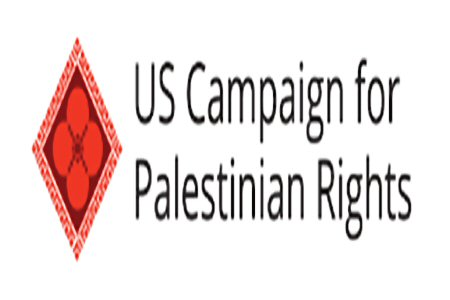The US Campaign for Palestinian Rights welcomes a Federal District Court preliminary injunction halting a Kansas law that punishes persons engaged in boycotts of Israel. January’s ruling came in response to a lawsuit filed by the American Civil Liberties Union (ACLU), last fall, and is a powerful affirmation that the right to boycott for political causes is protected by the US Constitution.
US Campaign Executive Director Yousef Munayyer said, “We thank the ACLU for its dedicated work to battle repressive efforts aimed at stifling peaceful dissent. These repressive laws should have no place in the United States, where boycotts have been historic vehicles for social change. We know that there is more legal and legislative repression ahead, and we look forward to seeing those measures also fall flat in the face of justice and our constitutionally protected freedoms. We remain dedicated to the work of building the movement for Palestinian rights and holding Israel accountable through boycotts, divestment, and sanctions advocacy.”
The plaintiff in the case, Esther Koontz, is a member of the Mennonite Church USA, which, alongside eight other Christian denominations including the United Methodist Church and Presbyterian Church (USA), has taken economic action to support Palestinian human rights through boycott and divestment. As explained in an ACLU brief, “in accordance with calls for boycott made by members of her congregation and her church, Koontz decided not to buy consumer products made by Israeli companies and international companies operating in Israeli settlements in the occupied Palestinian territories. Koontz participates in this boycott in order to protest the Israeli government’s treatment of Palestinians and to pressure the country to change its policies.” In short, Koontz, a math teacher, supports boycotting Israel and was denied a state contract to train other teachers after refusing to certify she was not engaged in a boycott of Israel.
In the summer of 2017, the US Campaign worked alongside a member group, the Mennonite Israel Palestine Network, to support the adoption of an investment screen by the Mennonite church that would withdraw “investments from companies that are profiting from the [Israeli] occupation.” The resolution passed with the support of a stunning 98 percent of delegates gathered to represent congregations across the country.
Koontz is one of many Mennonites who adopted the church’s principled stance to stop investing in human rights abuses and applied it to their own consumer decisions. Koontz describes coming to the decision to boycott after learning about the situation on the ground from a member of her congregation: “we talked about how boycotts, divestments, and sanctions could help bring about an end to the Israeli government’s occupation, in the same way those tactics helped dismantle apartheid in South Africa. I left the meeting with the conviction that I needed to do my part to support the Palestinian struggle for equality, even if it just meant not buying Sabra hummus or a SodaStream machine.”
The work to educate, organize, and advocate is the key to achieving freedom, justice and equality for Palestinians and is undoubtedly protected by the First Amendment. Today’s decision is an important reminder that this work for accountability is not only a moral imperative, but is constitutionally protected as well.
The US Campaign for Palestinian Rights (USCPR) is a national coalition of hundreds of groups working together for freedom, justice and equality. Founded in 2001 as the US Campaign to End the Israeli Occupation, USCPR has been a leading player in the movement for Palestinian rights in the United States. The coalition is bound by commonly shared principles on Palestine solidarity as well as anti-racism principles.
Search IMEMC: “boycott”

